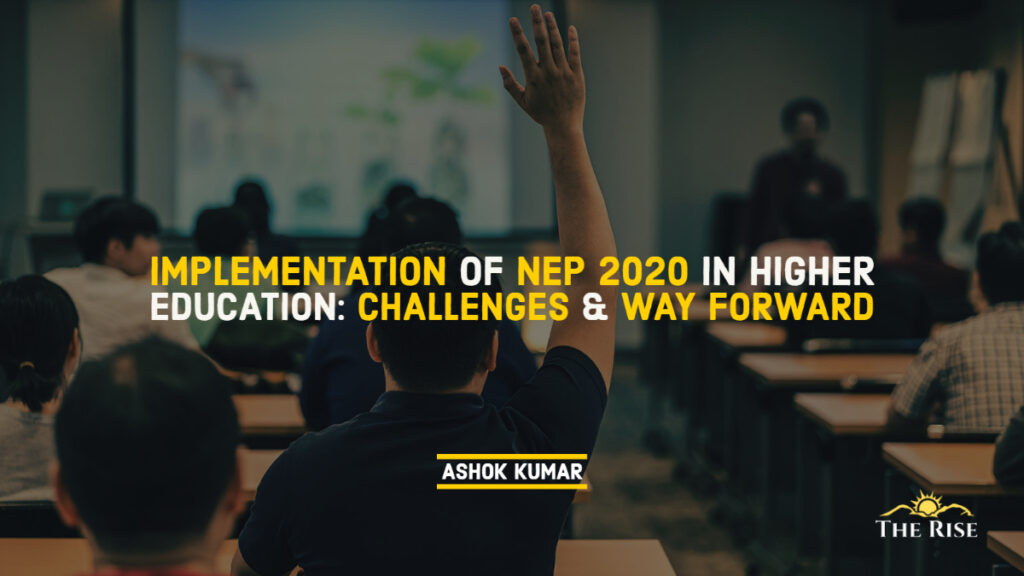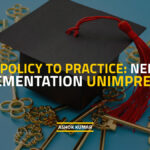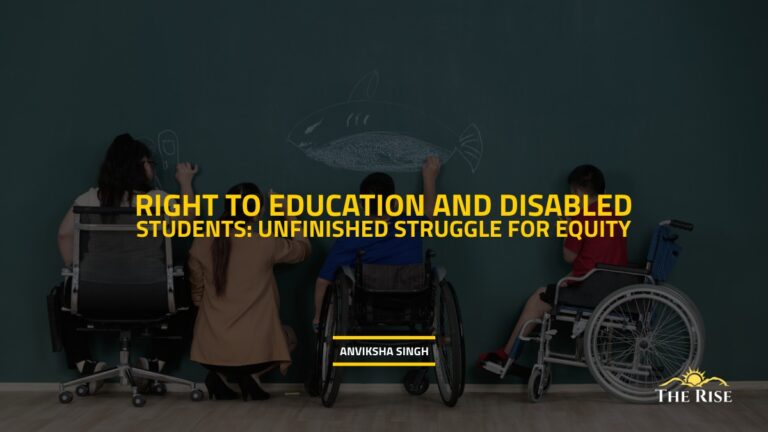There exist some critical issues that need to be addressed in order to implement NEP 2020 in higher education successfully which include issues of accessibility, quality of teaching, research, and innovation. The successful implementation of NEP 2020 in higher education will require a concerted effort from all stakeholders.
The National Education Policy 2020 (NEP 2020) is a landmark document that aims to transform the Indian education system at all levels. The policy has a number of ambitious goals for higher education, which include increasing access, improving quality, and promoting research and innovation.
However, there are a number of critical issues that need to be addressed in order to implement NEP 2020 in higher education successfully. These include:
- Funding: The NEP 2020 calls for a significant increase in funding for higher education. However, it is not clear how the funds will be generated. The government needs to find a way to increase funding for higher education without placing an undue burden on taxpayers.
- Capacity: India’s higher education system is currently under-resourced and overcrowded. In order to implement NEP 2020, the government needs to invest in expanding the capacity of higher education institutions, which includes building new colleges and universities, as well as improving the infrastructure of existing institutions.
- Quality: The NEP 2020 aims to improve the quality of higher education in India. This will require a number of changes, including improving teacher training, introducing more rigorous assessment standards, and promoting research and innovation.
- Governance: The NEP 2020 calls for a more decentralized system of governance in higher education. This requires the government to devolve power to state governments and institutions. It will also require the development of new mechanisms for coordination and collaboration between different stakeholders.
- Culture: The NEP 2020 aims to create a more learner-centric culture in higher education. This will require not only a change in mindset among students, teachers, and administrators but also the development of new teaching and learning methods.
These are just some of the critical issues that need to be addressed in order to implement NEP 2020 in higher education successfully. The government must work closely with stakeholders to address these issues and ensure that the policy is implemented effectively.
Also Read: Why is it Challenging to implement NEP 2020 in Academic Institutions?
In addition to the above, here are some other critical issues that need to be addressed for the successful implementation of NEP 2020 in higher education:
- Lack of access to higher education: The NEP 2020 aims to increase access to higher education for all sections of society. However, there are still a number of barriers to entry, such as poverty, gender discrimination, and lack of infrastructure. The government needs to address these barriers in order to make higher education more accessible to all.
- Quality of teaching and learning: The NEP 2020 aims to improve the quality of teaching and learning in higher education. However, there are still a number of challenges in this area, such as the shortage of qualified teachers, the lack of resources, and outdated curriculum. The government needs to address these challenges in order to improve the quality of teaching and learning in higher education.
- Research and innovation: The NEP 2020 aims to promote research and innovation in higher education. However, there are still a number of challenges in this area, such as the lack of funding, the shortage of qualified researchers, and the lack of infrastructure. The government will need to address these challenges in order to promote research and innovation in higher education.
The successful implementation of NEP 2020 in higher education will require a concerted effort from all stakeholders. The Central government, State governments, institutions, teachers, students, and the community will all need to work together to make this happen.
Disclaimer: The views expressed in this article are of the author solely. TheRise.co.in neither endorses nor is responsible for them. Reproducing this content without permission is prohibited.
About the author
Prof. Ashok Kumar is former Vice-Chancellor of Deen Dayal Upadhyaya University, Gorakhpur (U.P.) & CSJM University, Kanpur, (U.P.), Nirwan University, Jaipur, Rajasthan, and Shri Kallaji Vedic University, Nimbahera, Rajasthan. He is President of the Social Research Foundation, International Society of Life Sciences.











Pingback: The 3Ds of Post-COVID Classroom: Distraction, Disruption, Decline
Sir , today NEP led colleges and students are in cross roads and they are unable to find destination.
Pingback: What is National Education Policy? - thebusinesscluster.net
Pingback: From Policy to Practice: NEP 2020's Implementation Unimpressive